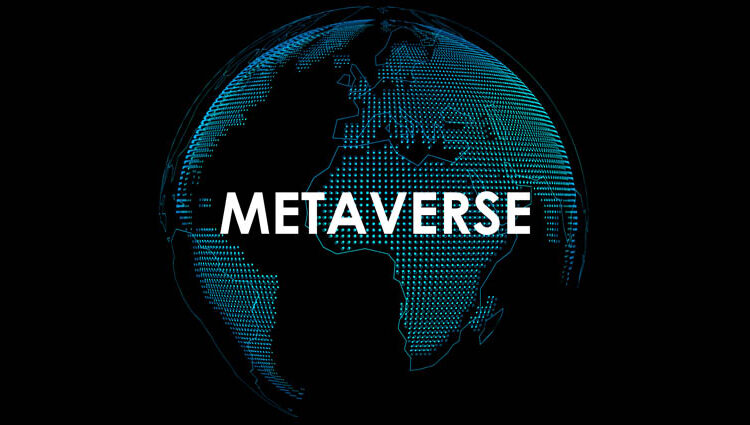With a $1 trillion revenue opportunity in less than a decade, businesses must start preparing for a metaverse-dominated future.
Following Facebook’s rebrand as Meta and several companies’ serious intentions for the metaverse, Morgan Stanley announced that it would be the “next big investment theme” in a note.
15 years back, software-as-a-service and the cloud had evoked a similar tectonic shift, leading the value of some companies to skyrocket and opening up a new economy for a cluster of players.
For several businesses that were at the right place at the right time, their growth trajectory changed for good.
Now, as we close out 2021, what are the potential business impacts we could expect in the next few years, as metaverse technologies are developed and gradually deployed?
To explore this, we need to first understand why the metaverse is a revolutionary market force in the first place.
The metaverse is defined as a 3D virtual space that mimics the physics of our real world but introduces the advantages of AR and VR technology to drive rich interactive experiences between multiple users, as well as between a user and their virtual environment.
Think of Matrix, where Neo could walk about a virtual urban landscape but also defy the laws of gravity if needed.
The metaverse, as envisioned by companies like Microsoft, Decentraland, Epic Games, and now Facebook, brings similar capabilities to technology users.
The business implications of the metaverse are immense. It would enable hi-touch interactions for remote users, employees, and customers. Employees can conduct face-to-face meetings without having to be there in person.
Customers can explore locations, trial new products, and even try customisations without having to travel to a store.
Further, there are new business opportunities to be explored when you defy the laws of physical reality. For example, data presentations don’t have to be limited to a 2D slideshow – you can actually model data in 3D and interact with your hands.
Similarly, customers visiting a virtual reality theme park in the metaverse can go on rides without the traditional safety limitations.
It has been argued that the metaverse will come to be treated like a wholly new territory of its own. It will allow businesses from different physical locations to participate in a singular market economy, without trade barriers.
The impact of real-world borders, treaties, and sanctions on the metaverse remains to be seen – but at its core, businesses will be able to trade freely without geographic constraints.
Eventually, one could imagine entire trading marketplaces and stock exchanges built in the metaverse that’s open to a much larger pool of investors than ever possible in the real world.
Blockchain is one of the foundational technologies that will power the metaverse.
The metaverse is decentralised in nature, which means that no single entity will build it, own it or support it.
This requires an underlying architecture based on blockchain, which is already the case with metaverse platforms like Decentraland and Sandbox. Real estate in these platforms is considered as tradeable, blockchain-based assets.
Users can trade assets through cryptocurrency and property sold as NFTs ensure that assets remain non-interchangeable and retain their value.
In other words, the economy in the metaverse will depend entirely on blockchain and related asset classes like crypto and NFTs. In the future, we may have one, unified metaverse that converges the multiple platforms that are being built.
Businesses can expect to buy property as NFTs to set up their VR stores, and offer customers product catalogues that are priced using crypto.
The metaverse enables three primary use cases for business operations:
Provide services for the metaverse
The metaverse will have its own product and service requirements that can be met by businesses in the metaverse. For example, users might want to purchase VR accessories to personalise and “dress” their 3D avatars. Games could have artifact hunters to help players complete goals and earn money.
Tour guides in VR locations like theme parks or museums are another area where businesses can operate.
Sell meta-assets as NFTs
Businesses can also engage in the sales and purchase of virtual assets in the metaverse, in the form of NFTs.
Non-fungible tokens or NFTs are an increasingly popular digital asset class that confers upon the buyer a form of ownership license for a virtual product. In the recent past, tweets, memes, GIFs, and digital artwork have been sold as NFTs.
Businesses could find investment opportunities in the metaverse, thanks to demand for high-value NFTs.
Advertise real-world products in VR
The metaverse could also drive business growth in the real world through VR ads and marketing. Advertising in the metaverse could range from digital billboards outside of virtual collaboration spaces to product placements in VR games.
You could have end-to-end brand storytelling experiences like Nikeland, with downloadable brand offerings that reinforce product recall for physical stores.
Business and trade in the metaverse will have multiple dimensions, making it a challenging task for regulatory bodies.
For one thing, the value of cryptocurrency is known to vary wildly on a daily basis; this calls for special measures for investor protection.
Also, the intrinsic value of NFTs is up for debate as the ownership license isn’t quite the same as for traditional goods and services.
Finally, there is a risk of large brands and market leaders getting a headstart and possibly monopolising ad messaging in the metaverse.
For instance, Gucci, Nike, Louis Vuitton, and Coca-Cola have been among the early movers in this space – this could make it difficult for smaller and emerging brands to carve out room.
Ultimately, the metaverse is poised to be the next iteration of the free market, only this time in virtual reality. It will have all the associated risks and opportunities – with regulatory intervention absolutely essential to ensure trading practices.

